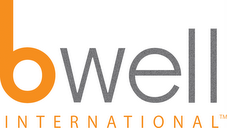by Phil Micali, CEO, bWell-informed
This week we saw the CEOs of the Big 3 automakers embarrass themselves with their tin cups in hand on Capitol Hill after flying into Washington on expensive private jets.
The American automakers have two major problems: they don't make competitive products, at least in the US market, and they have let too much health insurance coverage instill negative behaviors in their workers and associated families. Management and unions of the Big 3 have done well to provide health insurance coverage to attract loyal workers, however they have jeopardized our entire economy by allowing that coverage to foster unhealthy personal habits of the same workers and other beneficiaries. Costs have escalated more than any other service or product in our economy. Companies and individuals have lost their competitiveness because of it. Bailout mania is scaring the living daylights out of experts and the common folk. Our sorry state of health coverage and cost of health care is to blame.
Those unhealthy habits may explain why the automakers do not produce cars that consumers demand, like greener cars, smaller cars, longer lasting cars, cars that offer more value. So here we are again on this blog tying health movement with the green movement. It's a virtuous circle (a good one) when green industries and products grow, which produce a healthier environment and people within. A healthier workforce is more likely to produce greener industries and products. Few would argue that this is what makes sense for improving our daily lives and longterm prospects as a person, a family, a nation, and a global community.
With Citigroup announcing 53,000 job cuts this week, and more to come, it is clear lots of people will be looking to learn about something they often take for granted - health insurance. Not only will they become more sensitive to the premium to get health insurance, they will soon learn that in order to afford the premium and the protection against catastrophic, the costs of what they have been demanding in the way of illness care would be better spent on an ounces of prevention.
Health insurance for people that have it needs to be rightsized. For those that don't have it, coverage needs to be provided, either through personal means of paying the premium or eligible private or public programs subsidizing it.
More than any $700 billion dollar bailout, or what is yet to be decided in early December on an additional automaker bailout, universal coverage and prudent spending within and focus on prevention will leave the word bailout less iterated in our daily lexicon.
skip to main |
skip to sidebar

Health insurance is way too confusing. We are not used to buying it confidently, whether in the employer setting or on our own without an employers sponsor. Now is the time to be well informed about what is going on in health insurance and care reform, so you can obtain high quality and lower costs.

Enter into a dialogue with thought-leaders in health coverage issues, including but not limited to Health Savings Accounts and Consumer Directed Health Care! This blog covers this rapidly changing marketplace with news and commentary from bWell's executive team.
bWell International, Inc. is a health benefits education company that believes health is wealth, and was founded to help consumers gain more confidence about their health coverage and lifestyle decisions.
Learn more about the company at www.bwell-inc.com or take a spin through our flagship product, the bWell-informed Health Plan Forecaster: www.bwell-informed.com
bWell International, Inc. is a health benefits education company that believes health is wealth, and was founded to help consumers gain more confidence about their health coverage and lifestyle decisions.
Learn more about the company at www.bwell-inc.com or take a spin through our flagship product, the bWell-informed Health Plan Forecaster: www.bwell-informed.com